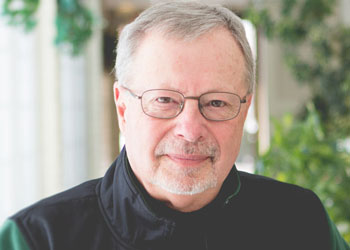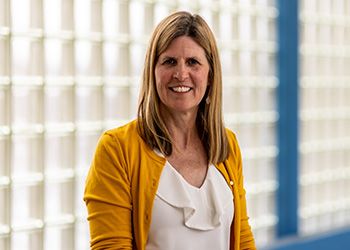The Erickson Legacy Continues
In the College of Education at MSU, donors can be certain the benefits of creating an endowed chair will spill beyond one individual professor.
The Erickson Legacy Continues
In the College of Education at MSU, donors can be certain the benefits of creating an endowed chair will spill beyond one individual professor.
January 8, 2015When W. Bruce Erickson created an endowed faculty chair at Michigan State University, he knew putting additional funds in the hands of faculty would empower bold ideas. Growing up the son of former Dean Clifford Erickson, he recognized the quality of the research and teaching in the College of Education. And he believed there was untapped potential to achieve his mother’s mission: to help more people, especially non-traditional students, attain a higher education.
More than a decade later, not one but three professors have held the Dr. Mildred B. Erickson Distinguished Chair in Higher, Adult, and Lifelong Education (HALE). They have used revenue from his $1.5 million investment to deepen and expand their own research and also to hold major conferences and host national experts on campus. They have created new student internships, research assistantships, and trips to explore higher education policy in Washington, D.C. and other countries.
Typically, funding for academic programs is already committed to salaries and general expenses, so resources set aside for a faculty chair can provide a much-needed catalyst to start up innovative projects and programs. In the College of Education at MSU, donors can be certain the benefits of creating an endowed chair will spill beyond one individual professor. In the case of the Erickson Chair, the recipient—which rotates every three years—has flexibility to decide how to spend an annual allocation of the endowment.
“It reflects in the culture of our program,” said HALE professor and former Erickson Chair James Fairweather. “We made a decision as a faculty not to make it a permanent appointment, but figure out the best ways of using the money to promote faculty work and student success.”
While in the position, Fairweather directed much of the funds toward students, such as by creating summer internship opportunities to study issues in higher education policy. Professor John Dirkx, who most recently held the Erickson Chair, studied the growing impact of graduate-level study abroad in partnership with the Office of Study Abroad at MSU. Professor Ann Austin explored changes in the careers of faculty members across the nation.
“I really appreciated the opportunity to meet with Dr. Erickson and express our gratitude for his gift,” said Austin, who was the first Erickson Chair.
Sadly, Bruce Erickson passed away in 2012. However, his family legacy in the College of Education lives on thanks to his generosity—and the family members who will proudly carry the honor of his name.
Invest in faculty, change the future
As leaders in their respective fields, faculty members in the College of Education at Michigan State University are a collective force for improving education and human development. The faculty is known for contributing powerful new knowledge through their research, modeling excellent teaching for their students, and empowering change in local, national and global communities.
The faculty is broad, with more than 120 in the tenure system and on average 10 new hires each year. Our reputation draws talented scholars to MSU but we also need financial incentives to bring them here. We need endowed chair positions—a coveted honor and powerful funding source—to help us recruit and retain more of the most sought-after faculty and remain competitive with our national counterparts.
In education, Michigan State University is already ranked among an elite group of both public and private universities, competing for the brightest students and faculty. We do this despite the fact that our peers outpace us in private funding for faculty. Endowed chair positions will elevate our reputation, and our capacity to make an impact as Spartans do—not only for their own careers but for the common good.




